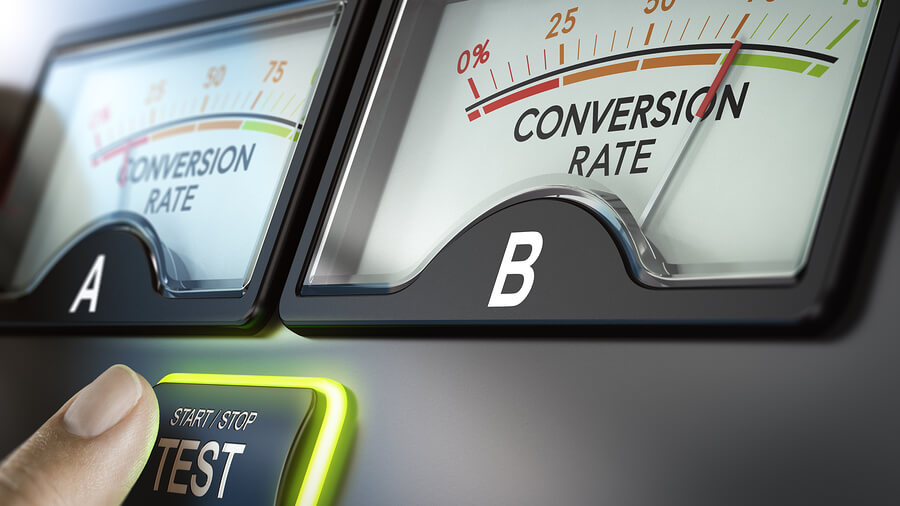
To help guests through the customer journey, hotels will need to participate in a multi-channel digital marketing approach.
NB: This is an article from GCommerce
That includes channels that can provide insights and ROI such as paid search, Facebook, display, and more. I’m often asked how I would prioritize all of the different digital marketing channels for hotels, and my response is always to start at the goal. Are you trying to generate top of funnel brand awareness through prospecting or are you trying to drive more bottom of the funnel direct bookings at a lower cost-per-acquisition (CPA) than the OTAs through remarketing efforts? Once you have a goal and a budget, you can start to select which digital marketing channel will help you reach the right customers.
1. Ongoing Search Engine Optimization for Your Hotel’s Website
Most hotels see organic as either the #1 or #2 source for website sessions and revenue. While performance shown through organic traffic metrics is a result of a full-funnel and multiple channel marketing strategies, in order to maintain position within the organic search results means an ongoing focus on foundational on-page SEO strategy and tactics. Hotels should always prioritize search engine optimization near the top of the list and one-time optimization is not going to be enough. Google’s search algorithm, the SERP and competition for your targeted keywords and search intent are constantly changing. Ongoing search engine optimization for your hotel’s website and digital presence is necessary to remain competitive within Google’s search results. Ongoing on-page SEO includes optimizing foundational elements such as image alt tags, meta descriptions, H1 title tags and possible schema markup, which at GCommerce we call Structured Data. It also includes recommendations for new and expanded content, monitoring the site for technical SEO issues and recommending changes to ensure successful accessibility. Learn more about how to be successful with on-page SEO for hotel websites in our previous blog here.
Hotels should monitor search engine ranking reports, also called SERP reports, that show the current rank for the top keywords the brand wants to target. The goal is to improve rank and exposure for targeted keywords within the Google search results page. It can be very difficult for smaller brands and independent hotels with smaller overall marketing budgets to gain enough traction to rank for high volume keywords like “Miami hotels”, so finding more specific, long-tail keywords that you are more qualified for is a more successful approach and strategy for your hotel’s SEO. Instead of a broad keyword with incredibly high competition such as “Miami hotels” try a keyword like”oceanfront Miami hotels near Indian beach park” that might have less total search volume but has less competition and is more qualified and more relevant to your hotel. You’ll have a better chance of ranking higher in the search results and drive more qualified traffic.
Below is an example of a search engine ranking report:

2. Paid Search for Hotels
Google and Bing paid search campaign management is ever-evolving and something that most hotel marketing teams do not have the bandwidth to manage. Most hotels either avoid participating in it or hire a digital marketing firm, like GCommerce, to manage it for them. What is important to note is that beyond having a well optimized and mobile-friendly website and booking engine, paid search is the most important marketing channel hotels can participate in.
If you look at the booking funnel for hotels, paid search is the only digital marketing channel where the guest shows intent before seeing any type of ad. A guest needs to have actually typed into Google a keyword phrase such as “hotels near a golf course in Heber” before they see an ad for The Homestead Resort. Think about your property and your market and what you think guests are searching for to find your hotel. Make sure that your hotel’s digital marketing firm is aware of these search terms. Make sure the firm knows the local way people refer to the area your hotel is based in along with any neighborhood specifics. For example, do they know that downtown LA is referred to as DTLA? When my clients give me this type of guidance, we complete research around that keyword phrase to make sure it has enough search volume to include it in our paid search campaigns for the hotel.
Just like with SEO, Google is always changing the game. The platform is constantly adding new features along with getting rid of current features, so paid search requires continued management and optimization. At GCommerce, we are continually adding and removing keywords from campaigns, updating messaging, testing targeting options and testing bid strategies based on performance so that we can drive down the ever-rising cost-per-click (CPC) as much as possible to improve overall ROAS.

3. Facebook and Instagram Hotel Advertising
Facebook and Instagram ads are two of the most popular channels for driving brand awareness for hotels because of their fantastic targeting capabilities. You can target geo-locations and standard demographics such as age and gender. Based on the targeting, ads should create awareness of the hotel brand and highlight the key location, events or amenities. For example, if you are trying to drive wedding RFP submissions for your hotel, you would want to target those that are recently engaged in a specific drive market.
Hotels can also use Facebook and Instagram to run remarketing ads based on traffic to the hotel website or email lists of past guests. Hotels can target these audiences with messaging around hotel offers, events and loyalty programs. Once considered a low-cost marketing channel, Facebook and Instagram are not always a low cost, but they are still lower cost than most other channels and worth investing in for both awareness, lead generation and driving direct bookings for your hotel.

4. Display Advertising for Hotels
Like most other digital marketing channels, display ads can be used for both hotel prospecting and remarketing campaigns. When my hotel clients ask me how they can drive more qualified eyeballs to their website, I will usually recommend a display prospecting campaign through the Google Display Network. The CPM is usually around $3 per 1000 impressions and the targeting capabilities that include those looking to travel to a specific region are fantastic. For prospecting, GCommerce recommends that the campaigns run for at least 60-90-days with a minimum budget of $750-$1500 per month. The goal is to drive visitors to the hotel website that we can remarket to with offers in the future.
Remarketing is also a great way to utilize this digital marketing channel for your hotel. Based on the different custom audiences that we discussed in part two of this series, you can promote lodging ads to visitors that interacted with the room pages of the website, wedding packages to those that visit the wedding section and F&B to those that spend time on the dining pages and are located 30-miles from the hotel. With display remarketing, the budget is based on the hotel’s website traffic.

5. Organic Social Content Marketing for Hotels
Though there has definitely been a decline in social engagement for brands over the last few years, it is still important to push out organic content for your hotel on Facebook and Instagram. We know from the Search Engine Lands SEO Periodic Table that social signals are correlated to ranking performance within the search engines. At GCommerce, we recommend keeping the content authentic. This could look like photos of community involvement, fun photo contests, local & hotel specific events, and hotel guests user-generated content (UGC).
For most hotels, the most important channels for organic social are Facebook and Instagram. Try to post 2-3 times per week on Facebook and even more frequently for Instagram. Avoid posting about promotions, which should be pushed out as ads instead. Use social channels to have a conversation with past and future guests, and avoid a one-way conversation.

6. Hotel Metasearch
Hotel metasearch platforms, such as Google Ads, TripAdvisor, and Kayak, are an extremely important initiative for driving direct bookings for your hotel and taking market share back from the OTAs. Hotels should prioritize metasearch based on the amount of OTA contribution they have. If a hotel sees that their OTA contribution is rising or they would like to decrease their contribution, participating in metasearch would help drive more direct bookings. However, metasearch should also be paired with rate parity tools that will make sure that the hotel is always the same, if not lower, than the OTAs so that there are not any wasted marketing dollars on this channel. Hotel metasearch is managed on either a cost-per-acquisition (CPA) model or requires a management fee plus media budget.





